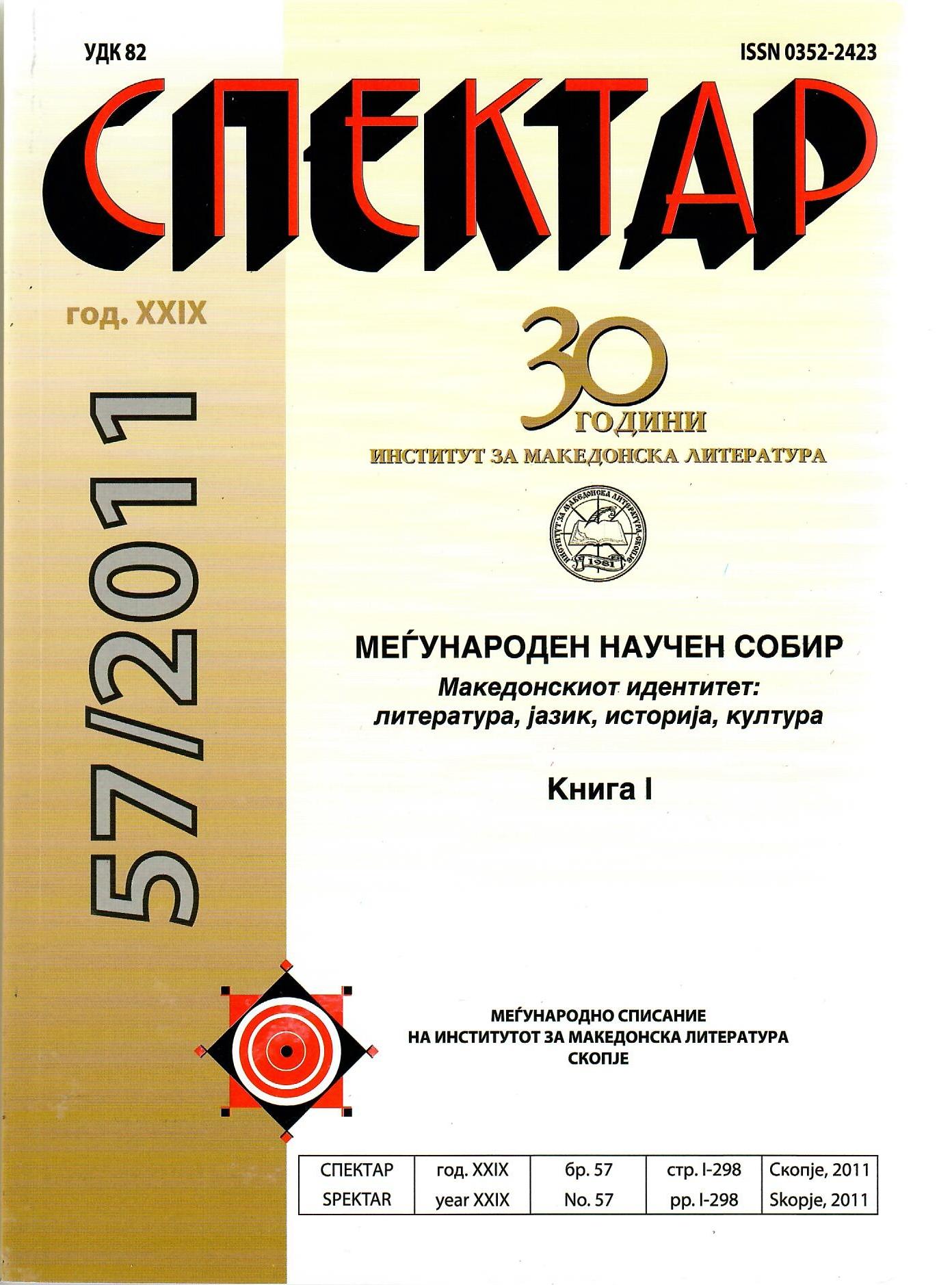ВЕДА СЛОВЕНА КАКО ДОКУМЕНТ НА СЛОВЕНСКАТА СВЕСТ, ЕВРОПСКИОТ КОНТЕКСТ И СОПСТВЕНАТА ТРАДИЦИЈА
VEDA SLOVENA AS A DOCUMENT OF SLAVIC CONSCIOUSNESS, EUROPEAN CONTEXT
AND TRADITION
Author(s): Lilla Moroz-GrzelakSubject(s): Culture and social structure , Identity of Collectives
Published by: Институт за македонска литература
Keywords: Slavophil; Illyrian ideology; literary mystification; revival of the Slav nations; Verkovic; “Veda Slovena”; national identity
Summary/Abstract: The report presents the cultural context in the Slav Macedonians rebirth and shaping their identities in the face of aggressive Hellenization. It resulted in the 19th century works by authors who appealed to the union in the community of ethnic Slavs. In the literature of this period manifested belonging to the great Slavic family, also literary mystifications resulted, among them the most famous forgery of southern Slavs Veda Slovena. Two volumes of songs which were supposed to be ancient, the Slavic folk works, considered as a prove of dominant role of the Slavic culture over the Greek. Those works appeared on the mentioned region during the period of fascination of Slavic past, during the process of awaking distinct cultural feelings in the consciousness of the people living in that area. Veda Slovena still remains as a document of that epoch, created as a result of convergence of the two ideas: Illyrian and Slavophil. In the same time it proves the creation of history on the base of falsely understood ideas. An initiator of the whole undertaking and the publisher, Stefan Verković believed that folk songs about ancient Slavic sovereigns existed and reportedly preserved in area of Southern Orthodox Slavs dominated by Greek. A very important part shaping Stefan Vercović `s ideological views played works of Croatian writer Andrija Kačić Miošić and views of Ljudevit Gaj and J. G. Herder. Fascinated by the Illyrian ideology he found a confirmation of his own thesis in ancient roots of Slavs, in the works of Czech Slavists and the authors proclaiming theories about the origin of Slavs from old India. Verković was convinced that his way of perceiving was right, he lived in utopian reality maintained by his closest co-worker – a country teacher Jovan Gologanov. That amateur of Homer`s poetry, with graphomaniac talent and smartness, for many years kept Verković in illusion about Slavic past, sending to him songs made of folk mode, which he was writing himself. Verković, cheated by Gologanov became an involuntary forger and author of mystification, questioning a civilization sense of Greek culture expressing in that way his aversion to the Greek policy of Hellenization.
Journal: Спектар
- Issue Year: 2011
- Issue No: 57
- Page Range: 158-167
- Page Count: 10
- Language: Macedonian

